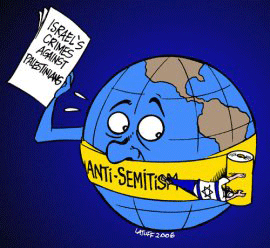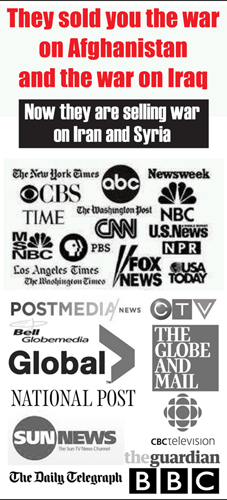
 |
 |
ROMANA CLAY: “But broadsheets are just as guilty of celebrity worship as the tabloids. In fact, you cited the Vancouver Sun’s eight-part series on Justin Bieber. One analyst commented: ‘By larding the paper with infotainment, celebrity worship and soft features, the Sun ensures that readers remain distracted and amused, and thus less likely to notice the absence of substantive reporting.’ So, what’s the difference?”
HOWE: “It’s a matter of degree. Both types of papers practise infotainment distraction and pre-censorship, but the latter is more noticeable and consequential in broadsheets.”
CLAY: “Why’s that?”
HOWE: “A major broadsheet is more often than not the newspaper of record for a city, province, state or country, and so is more easily associated with objective, professional journalism in the minds of readers. Compared to a tabloid, a broadsheet is generally more established, has a larger staff, and has more money behind it, so it can afford to cover stories in greater variety and depth, especially international stories, and this is where pre-censorship is more likely to occur.”
CLAY: “Why these stories as opposed to any others?”
HOWE: “Local news is small potatoes, whereas international news is where the pro-Israel bias of the paper’s owners is most vulnerable. Reporting here must be skewed to insulate Israel from all but the most tepid criticism, and to stoke anti-Muslim hysteria to justify aggression in the Middle East and South Asia. Unfortunately, it is very easy to do.”
CLAY: “How can it be easy for a newspaper to control information from so far away.”
HOWE: “It doesn’t control it; it filters it. You see, newspaper owners subscribe to wire services that provide a plethora of stories and photos on a variety of topics for a monthly fee, typically a few thousand dollars per service. It may sound expensive, but it’s much cheaper than maintaining a battery of correspondents and specialist reporters. Anyway, the stories that the services put out on ‘the wire,’ to use an anachronism, are the only officially allowed sources. If a story doesn’t appear on the wire, to all intents and purposes it doesn’t exist, no matter how important.”
 |
HOWE: “You’d think so, but no. Western wire services generally drink from the same Kool-Aid® pitcher, so you get no useful alternative to the official pro-U.S./pro-Israel perspective. Only rarely, in the case of a major gaffe that becomes too big to ignore, does a newspaper report an inconvenient truth.”
CLAY: “You mean like Sarkozy and Obama complaining about Netanyahu?”
HOWE: “Exactly! After a microphone picked up Sarkozy complaining about Netanyahu and calling him a liar, with Obama’s emphatic commiseration, covering up the incident would have been too difficult to justify. Even then, nothing will come of it, and the manipulation of the mass public will go on uninterrupted.”
CLAY: “On that note, we’ll take a short commercial break (to the camera) and when we return we’ll speak with an editor from a North American broadsheet who has chosen to speak out against pre-censorship. (two-minute pause) We’re back and joining us via satellite is “John,” not his real name. Because he would face reprisals from his employer and possibly the Israel Lobby for speaking out, WTFN has agreed to show him in silhouette and distort his voice. (to the monitor). John, welcome. To begin with, tell us from your experience if Professor Howe’s criticism of broadsheets is correct?”
 |
“Remember the ‘story’ last October about Iran hiring Iranian-American used car salesman Mansour Arbabsiar to assassinate the Saudi ambassador to the U.S.? Well, anyone with half a brain could tell it was a hoax: a) Iranians don’t go in for stupid, half-baked assassination plots; b) Iran had no dealings with Arbabisar; and c) Iran had no motive. In fact, the whole story was cooked up by Israel to foment hatred against Iran. Hell, Mossad even supplied Arbabisar with fake papers! Could I run a story that showed that? No-o-o-o! I could only run the officially approved wire-service hoax, and by doing so I gave credence to disinformation.”
CLAY: “But these stories carried the Iranian denials, didn’t they? How can you say it was disinformation?”
JOHN: “You’re right—the Iranian viewpoint was included—but it was used instrumentally, not objectively.”
CLAY: “What does that mean?”
JOHN: “As is always the case, denials give legitimacy to a story. In this case, Iran was expected to deny the assassination attempt. It was already factored into the story. But the denial of a lie does not automatically dispel the lie, so the hoax ran for weeks until it finally collapsed. You see, the opinions of Iran—or Palestine or Syria—are not reported in an unbiased manner because that would prove too embarrassing for Israel and the U.S. All we expect from such countries is to react to a story, the truth of which has already been pre-determined and shaped for public consumption. Ironically, the international service of PressTV, the Iran news service, is among the best in the world, but we are not allowed to use its stories because we’re in the censorship business, not the reporting business.”
HOWE: “Can’t you search the Internet for stories?”
JOHN: “No. That would violate copyright agreements. For example, in November somebody alerted me to a Bloomberg web story of organ gangs forcing poor Third-World people to sell their kidneys, mainly to desperate Israelis. But because the story was not put out on the Bloomberg wire I couldn’t touch it, even though it was an important story. The big problem with wire service contracts is that they not only provide relatively cheap reporting but also effectively allow a paper to to get away with pre-censorship.”
CLAY: “Have you ever had an editor tell you to run or not run such-and-such a story because of its impact on Israel?”
JOHN: “No. The culture of pre-censorship is so ingrained that nobody has to tell us. The senior editors are either pro-Israel or ignorant. For my part, I know better than to run up against the paper’s political bias and transparent dishonesty. I make a good living, and can’t afford to lose my job. Therefore the non-foreign policy aspect of my job is the most important and also the least stressful.”
 |
JOHN: “The editors always claim that the paper’s readers aren’t interested in the Middle East, so I am expected to fill my section with stories about medicine, technology, the environment, economics, and so forth. These may all be good stories, but this crowding-out of vital political and military news also amounts to a form of pre-censorship. Besides, the senior editors only show interest in the Middle East when missiles start flying.”
HOWE: “But by then it’s too late, isn’t it?”
JOHN: “Exactly, and that’s the whole point. The paper wants a confrontation because once a military operation starts, critical reporting really goes out the window, and the propaganda factory can be allowed to spin out of control. The filtered, demonized coverage of Syria and Iran is meant to condition us to accept yet another contrived aggression that will cost North American lives and further bankrupt our economies for the sake of Israel.
“Did you read in your local paper, for example, that the leader of the so-called Free Syrian Army is not even Syrian? He is Media al-Harati, formerly the appointed head of the Tripoli Army Brigade after the overthrow of the Qaddafi regime? Or that Zionist Jews ran the recent Syrian Opposition meeting in France?”
HOWE: “Certainly not in my paper!”
JOHN: “Now, let me read the opening paragraph from the website of Lebanon’s Al-Manar newspaper:
‘Key Zionist philosopher Bernard-Henri Levy; former French Minister of Foreign Affairs, and major advocate of the war against Iraq Bernard Kouchner; member of the youth movement in the Israeli right wing Likud party Frederick Ansel; and former Knesset member and Israeli Defense Minister Ehud Barak’s advisor Alex Goldfarb who was not questioned by anyone for claiming to be a Syrian opposition member and spokesman of “Democratic change in Syria” assembly; were basic participants in the Syrian opposition conference in Saint-Germain in France.’
CLAY: “Good grief! You mean it’s all stage-managed by Israel?!”
JOHN: “Yep, and broadsheet newspapers are in the business of selling this fraud to us. If you really want to know what’s going on in the Middle East, don’t read newspapers and don’t watch TV.”
CLAY: “So where should we go?”
JOHN: “For starters, I recommend alethonews.wordpress.com, americanfreepress.net, commondreams.org, counterpunch.org, portsidemonitor.org, electronicintifada.net, globalresearch.ca, informationclearinghouse.info, irmep.org and presstv.ir. Aletho News is especially good at aggregating critical articles from the U.S. and Middle East. It also does a great job of covering Jewish settler terrorism, which of course my paper will not do.”
CLAY: “I’m sure our readers appreciate your courage and will start to demand better from their broadsheet newspapers. Thank you for being on the show, and thanks also to Professor Howe. We’ll have to have you back soon. This is Romana Clay. Good night.”
(Camera pulls back. Credits roll. Fade out.)